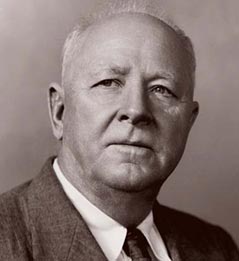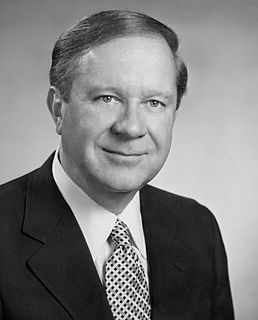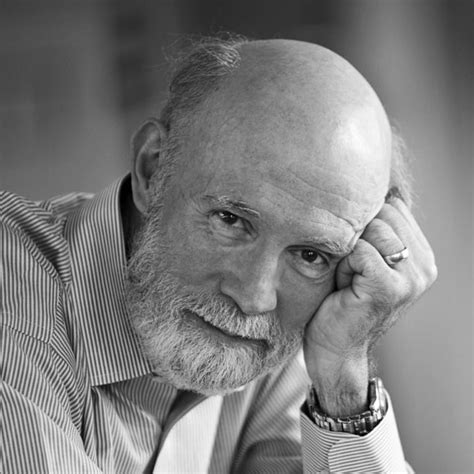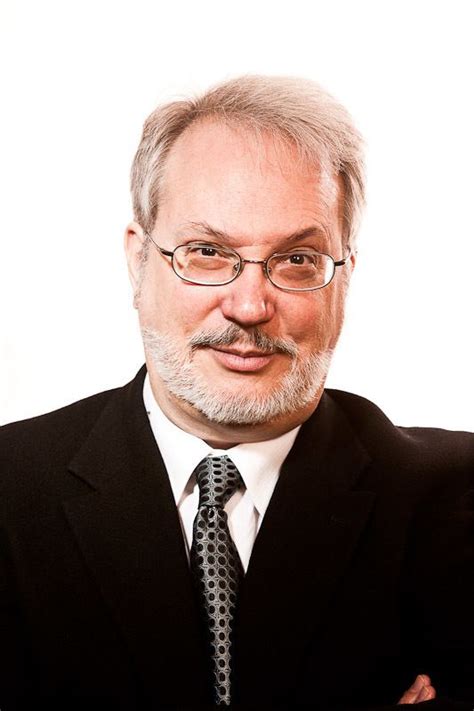Top 614 Productivity Quotes & Sayings - Page 10
Explore popular Productivity quotes.
Last updated on April 16, 2025.
Distractions are everywhere. And with the always-on technologies of today, they take a heavy toll on productivity. One study found that office distractions eat an average 2.1 hours a day. Another study, published in October 2005, found that employees spent an average of 11 minutes on a project before being distracted. After an interruption it takes them 25 minutes to return to the original task, if they do at all.
Most of the productivity gains appear to go to the top 1 percent. Most people don't have enough income and as a result, they borrow additional money by using their credit card and they fall into high debt. The result of the growing income gap is a slower growing GDP (too few people with money to spend) and a rising tide of indebtedness.
There is an advantage in having a routine and working with the same people when you can and in writing as a regular thing and filming as a regular thing. That routine pays off for you. You get a lot of productivity that way, rather than sitting around waiting for inspiration and waiting for the perfect thing to happen. I would be much less productive that way.
Money has to undergo a metamorphosis again, it has to relinquish its role in the market economy and engage in an economy of capacities. Then we would be concerned with human creative productivity. And we would come full circle, since each human being can then act within his company as co-creator of the future, can - in full dignity - contribute to shaping this future.
We're living in an economy where productivity is no longer the goal, employment is. That's because, on a very fundamental level, we have pretty much everything we need. America is productive enough that it could probably shelter, feed, educate, and even provide health care for its entire population with just a fraction of us actually working ... Our problem is not that we don't have enough stuff-it's that we don't have enough ways for people to work and prove that they deserve this stuff.
It looks as if there were a single ultimate goal for mankind, a far goal toward which all persons strive. This is called variously by different authors self-actualization, self-realization, integration, psychological health, individuation, autonomy, creativity, productivity, but they all agree that this amounts to realizing the potentialities of the person, that is to say, becoming fully human, everything that person can be.
I figure if Doc is right about the time I have left,I should wrap up my adolescence in the next few days, get into my early productive stages about the third week of school, go through my midlife crisis during Martin Luther King Jr's birthday, redouble my efforts at productivity and think about my legacy, say, Easter, and start cashing in my 401(k)s a couple weeks before Memorial Day.
In this respect a program is like a poem: you cannot write a poem without writing it. Yet people talk about programming as if it were a production process and measure "programmer productivity" in terms of "number of lines of code produced". In so doing they book that number on the wrong side of the ledger: we should always refer to "the number of lines of code spent".
In the eyes of many business leaders, there is never an opportune moment for tax reform. Yes, the economy is losing momentum, but that is not because a handful of people are losing their privileges. Slow growth did not first begin during my term in office; the market downturn is making itself felt around the world. My government has responded with an agenda aimed at raising productivity. We are also investing substantially in infrastructure - the plan calls for €20.5 billion or $26.3 billion by 2021.
Leaders should get out of their comfort zone but stay in their strength zone. When their work lies within their natural gifting and strengths, leaders experience the greatest return in productivity and contentment. Life is too short to live in the comfort zone, where growing and accomplishing and achieving your potential takes a back seat. I suggest you refocus if the comfort zone is your leadership priority.
In New York, there's so much stuff going on all the time, and when I first moved here my productivity went down. I felt like I had certain social obligations. I found the more that I was like, "Don't listen to other music," or "Don't watch other things," and, "Don't go to other shows," for a specific time period, if I really need to complete something, that is the most helpful tool for me.
Throughout the history of the Internet, most of the innovation has come as a by-product of efforts to facilitate communication within social groups of various kinds (academics, bloggers, peer-to-peer file sharing), rather than as the result of profit-oriented investment. Rather than taking the lead, the business and government sectors have adopted innovations developed in Internet communities, and realised significant productivity gains as a result.
God is the creativity, so if you really want to enter into the world of God you will have to learn the ways of creativity - and that has disappeared. Instead of creativity we value productivity: we talk about how to produce more. Production can give you things but cannot give you values. Production can make you rich outwardly but it will impoverish you inwardly. Production is not creation. Production is very mediocre; any stupid person can do it, one simply needs to learn the knack of it.
We tend to overestimate what we can do in a short period, and underestimate what we can do over a long period, provided we work slowly and consistently. Anthony Trollope, the nineteenth-century writer who managed to be a prolific novelist while also revolutionizing the British postal system, observed, “A small daily task, if it be really daily, will beat the labours of a spasmodic Hercules.” Over the long run, the unglamorous habit of frequency fosters both productivity and creativity.
Improved energy productivity and renewable energy are both available in abundance—and new policies and technologies are rapidly making them more economically competitive with fossil fuels. In combination, these energy options represent the most robust alternative to the current energy system, capable of providing the diverse array of energy services that a modern economy requires. Given the urgency of the climate problem, that is indeed convenient.
I have always had a special affinity for libraries and librarians, for the most obvious reasons. I love books. (One of my first Jobs was shelving books at a branch of the Chicago Public Library.) Libraries are a pillar of any society. I believe our lack of attention to funding and caring for them properly in the United States has a direct bearing on problems of literacy, productivity, and our inability to compete in today's world. Libraries are everyman's free university.
Instead of a bottom-line based on money and power, we need a new bottom-line that defines productivity and creativity as where corporations, governments, schools, public institutions, and social practices are judged as efficient, rational and productive not only to the extent they maximize money and power, but to the extent they maximize love and caring, ethical and ecological sensitivity, and our capacities to respond with awe and wonder at the grandeur of creation.
One of the proven ways of getting workers more involved with their jobs is by dovetailing employee profit-sharing and stock ownership plans with greater responsibility sharing... Trade unions in this country should... consider these arrangements much more carefully than they have up to now... Expanded employee profit participation and stock ownership would provide workers with a greater measure of economic and social independence, thus stimulating increased productivity.
Health care is in as bad a shape as it has ever been after eight years of Barack Obama and the Democrat Party running it and running the US economy. It's an absolute disaster. Other areas of the economy are a disaster. Economic growth? There isn't any. It's 1% per quarter, a 4% growth rate per year if we're lucky. There is no expansion. There is no productivity increase.
Knowledge and productivity are like compound interest. The more you know, the more you learn; the more you learn, the more you can do; the more you can do, the more the opportunity. I don`t want to give you a rate, but it is a very high rate. Given two people with exactly the same ability, the one person who manages day in and day out to get in one more hour of thinking will be tremendously more productive over a lifetime.
In all the thrashing about that results from our dwindling gold reserves, it's about time that this country and other countries get some perspective on the situation. The day this country is out of the stuff, that day gold becomes what it's worth as a metal and no longer will have much significance as a monetary measurement. It isn't the gold we have that makes this nation rich. It's what we make, our knowhow, our productivity. So long as this country produces more and better, the world will continue to want what we make.
The complexity of C++ (even more complexity has been added in the new C++), and the resulting impact on productivity, is no longer justified. All the hoops that the C++ programmer had to jump through in order to use a C-compatible language make no sense anymore - they're just a waste of time and effort. Now, Go makes much more sense for the class of problems that C++ was originally intended to solve.
During the 1960s, and again in the 1970s, growth in manufacturing productivity in the United Kingdom was the lowest of all the seven major industrial countries in the world. During the 1980s, our annual rate of growth of output per head in manufacturing has been the highest of all the seven major industrial countries.
History is largely a record of human struggle to wrest the land from nature, because man relies for sustenance on the products of the soil. So direct, is the relationship between soil erosion, the productivity of the land, and the prosperity of people, that the history of mankind, to a considerable degree at least, may be interpreted in terms of the soil and what has happened to it as the result of human use.
It is surely a matter of common observation that a man who knows no one thing intimately has no views worth hearing on things in general. The farmer philosophizes in terms of crops, soils, markets, and implements, the mechanic generalizes his experiences of wood and iron, the seaman reaches similar conclusions by his own special road; and if the scholar keeps pace with these it must be by an equally virile productivity.
The American College of Sports Medicine found that the productivity of people after exercise was an average of 65 percent higher than those who did not exercise. If I have something that's really bothering me, so much that it almost hurts my head to try to sort it out, I always find the solution in a puddle of sweat! Intense exercise is like taking a magic pill that gives you the ability to solve problems like a superhero.
Art and science coincide insofar as both aim to improve the lives of men and women. The latter normally concerns itself with profit, the former with pleasure. In the coming age, art will fashion our entertainment out of new means of productivity in ways that will simultaneously enhance our profit and maximize our pleasure.
Bring on those tired, labor-plagued, competition-weary companies and ESOP will breathe new life into them. They will find ESOP better than Geritol. It will revitalize what is wrong with capitalism. It will increase productivity. It will improve labor relations. It will promote economic justice. It will save the economic system. It will make our form of government and our concept of freedom prevail over those who don't agree with us.
Converting a classic batch-and-queue production system to continuous flow with effective pull by the customer will double labor productivity all the way through the system (for direct, managerial, and technical workers, from raw materials to delivered product) while cutting production throughput times by 90 percent and reducing inventories in the system by 90 percent as well.
I recently went to my staircase at Clare College, Cambridge and there were women there! There have been a lot of convincing studies recently about the loss of productivity in the Western male. It may be that entertainment culture now is so engaging that it keeps people satisfied. We didn't have that. Science was much more fun than listening to the radio. When you are 16 or 17 and in that inherently semi-lonely period when you are deciding whether to be an intellectual, many now don't bother.
Unfortunately, the real minimum wage is always zero, regardless of the laws, and that is the wage that many workers receive in the wake of the creation or escalation of a government-mandated minimum wage, because they lose their jobs or fail to find jobs when they enter the labor force. Making it illegal to pay less than a given amount does not make a worker’s productivity worth that amount—and, if it is not, that worker is unlikely to be employed.
The basic idea that the purpose of life is to be happy or is to experience the most favorable ratio of pleasure to suffering or productivity to work or gratification to sacrifice or any of that stuff, which, you know, a couple generations ago, to say that kind of stuff would have made you, you know, a freak - a freak and an Epicurean - and now seems to be so much - simply an unquestioned assumption of the culture that we don't really even talk about it anymore.
Sadly, too many corporate leaders still believe that the way to boost productivity and profits is to continually reduce salaries, benefits, and training expenditures, a strategy that can be taken only so far. At a certain point in a developed society, salaries and benefits can't be slashed further and, in the long term, comparative economic advantage then must be realized through the effective mobilization of an educated, engaged, and loyal workforce.
The widely accepted assertion that, only if you let markets be will everyone be paid correctly and thus fairly, according to his worth, is a myth. Only when we part with this myth and grasp the political nature of the market and the collective nature of individual productivity will we be able to build a more just society in which historical legacies and collective actions, and not just individual talents and efforts, are properly taken into account in deciding how to reward people.
Inflation is certainly low and stable and, measured in unemployment and labour-market slack, the economy has made a lot of progress. The pace of growth is disappointingly slow, mostly because productivity growth has been very slow, which is not really something amenable to monetary policy. It comes from changes in technology, changes in worker skills and a variety of other things, but not monetary policy, in particular.
CO2 from air can replace petroleum: it can produce plastics and acetate, it can produce carbon fibers that replace metals and clean hydrocarbons, such as synthetic gasoline. We can use CO2 to desalinate water, enhance the production of vegetables and fruit in greenhouses, carbonate our beverages and produce biofertilizers that enhance the productivity of the soil without poisoning it. Carbon negative technology is absolutely needed now.
Our minds must relax: they will rise better and keener after rest. Just as you must not force fertile farmland, as uninterrupted productivity will soon exhaust it, so constant effort will sap our mental vigour, while a short period of rest and relaxation will restore our powers. Unremitting effort leads to a kind of mental dullness and lethargy.
Depending on the day or even the hour, productivity can take very low dips. At times, I may feel like throwing in the towel. I love being inspired by amazing women who have achieved great things. When I have a setback, I will spend 15 minutes reading quotes from strong women or reading or watching an interview with a woman I admire (a gold medalist or a CEO). This gets me back in the right mindset to tackle any challenge.
One of the best ways to make growth personal is to give employees a share in their firm, a real incentive to go the extra mile, more of a 'John Lewis Economy' if you like...We know that firms where employees are engaged and own a stake do at least as well as other companies in the good times and have performed even better in recent bad times. Expanding and recruiting at a much faster rate and achieving better productivity...So, why do they make up just 2% of our business landscape?
Everybody is different. Some writers can write reams of great books and then J. D. Salinger wrote just a few. Beethoven wrote nine symphonies. They were all phenomenal. Mozart wrote some 40 symphonies, and they were all phenomenal. That doesn't mean Beethoven was a lesser writer, it's just some guys are capable of more productivity, some guys take more time.
I have observed several hundred salespeople who were taught to use deceptive practices like 'bait and switch' and encouraged to play negotiation games with customers. They were so stressed by this behavior that they suffered from a high incidence of alcohol and substance abuse, divorce, job-jumping, and low productivity. In the same industry, I have observed countless people who had been taught to sell with high integrity. Ironically, their customer satisfaction, profit margins, and salesperson retention were significantly higher.
From a productivity perspective, prioritization is key. And it's very easy to focus on clearing the decks of minutia, especially when one's very busy. It's almost easy to want to sit down at your desk when you have a free five minutes and try to clear out some of the incoming emails rather than strip things strategically and foundationally and ask about what the most important objectives for you and the company are.
Modern Australian trade unionism and the unionist that I am doesn't rely on a class war view that somehow that the interests of employees and managers are in two separate spheres and they're irreconcilable. I believe that when people can go to work and be happy, satisfied, engaged, where the employer is getting employees who feel their interests are aligned with the employer, you get productivity. This is the future of Australian workplaces.
A strong currency means that American consumers and businesses can buy imported goods and services more cheaply and that inflation and interest rates will be lower, ... It also puts pressure on American industry to increase productivity and competitiveness. These benefits can feed on themselves as foreign capital flows in more readily because of greater confidence in our currency. A weak dollar would have the contrary effects.
There are two synergistic approaches for increasing productivity that are inversions of each other:
1. Limit tasks to the important to shorten work time (80/20).
2. Shorten work time to limit tasks to the important (Parkinson's Law).
The best solution is to use both together: Identify the few critical tasks that contribute most to income and schedule them with very short and clear deadlines.
If you don't want to join a union, you're gonna have much more opportunity for individual expansion, individual expression of talent and achievement. But when you go to work at a place where salaries are predetermined not by your productivity and not by your talent and not by how much you work, but rather by what the union contract is, you're locked into that no matter how good a job you do. The only option you have is overtime to make more than what standard pay is.
The economic class struggle is a struggle against inessanlty intensified exploitation: not only against the brutal material form of exploitation, capitalism's tendency to reduce wages, and against the class 'techniques' for increasing productivity... but also around the question of the technical-social division of labor that prevails om enterprises, and against bourgeois ideology and repression.
Technology enables consumers and investors to have extraordinary choice and ease of switching, which, in turn, stimulates much fiercer competition than ever before, which, in turn, makes it imperative for every institution to innovate like mad. That innovation is powering our economy these days, and it requires companies to find and utilize creative workers. That's the most important syllogism going; technology is embedded in that syllogism, but it's not as if we're seeing these productivity gains because of the technology.
Everyone has some natural talent or aptitude in one or more areas. If you can identify those areas you not only will be happier and perform more successfully in that role, but you will also become better paid for that. Our free-market system pays for performance at some point. When you have a natural talent or aptitude, coupled with desire and experience, the result is productivity plus.
There's something very noble about bringing home a paycheck to provide for oneself and one's family. However, there's so much more to work than just a paycheck. This is unfortunately a very common view which I believe accounts in part for the statistic that approximately 70% of people are disengaged at work. Think about the loss of meaning and productivity and the staggering economic implications of that statistic.
I balance my natural drive for speed and impact with a counterbalancing drive for significance, innovation and sustained customer intimacy. This involves slowing down and moving from transactive management, which focuses on speed, content, accuracy and productivity, to transformative leadership, which focuses on significance, context, authenticity and purpose. This critical shift requires constant diligence, discipline and practice.
Too often we measure everything and understand nothing. The three most important things you need to measure in a business are customer satisfaction, employee satisfaction, and cash flow. If you’re growing customer satisfaction, your global market share is sure to grow, too. Employee satisfaction gets you productivity, quality, pride, and creativity. And cash flow is the pulse—the key vital sign of a company.
World War II was really unusual, because America was in the Great Depression before. So the war did help the US economy to get securely out of this decline. This time, the war [in Iraq] is bad for the economy in both the short and long run. We could have spent trillions in research or education instead. This would have led to future productivity increases.
As to the latter point - that by having a child in America you are somehow starving a child in Bangladesh - remember that agricultural economics is not a zero-sum game. Farmers want to make a living, so as demand increases, so does production. Not only that, but agricultural productivity has increased so rapidly that in some countries the government pays farmers not to plant crops in an effort to keep food prices from dropping.
Indeed, as we begin the twenty-first century, the money and traditional economies are slowly destroying their own support system. Increasing demands of the two economies are surpassing the sustainable yields of the ecosystems that underpin them. For example, one-third of the world's cropland is losing topsoil at a rate that is undermining its long-term productivity, fully half of the world's rangeland is overgrazed and deteriorating into desert, and the world's forests have shrunk by about half since the dawn of agriculture and are continuing to shrink.
The environmental crisis is somber evidence of an insidious fraud hidden in the vaunted productivity and wealth of modern, technology-based society. This wealth has been gained by rapid short-term exploitation of the environmental system, but it has blindly accumulated a debt to nature-a debt so large and so pervasive that in the next generation it may, if unpaid, wipe out most of the wealth it has gained us.
Give yourself the gift of uninterrupted time. It can be the first hour of your day. Or the last hour. A lunch hour. You want time free from phone calls, visitors, mail, things to read. Unplug the phone if you have to. Lock your door. Put a sign on it that warns people of the consequences of entering. Do what you have to and watch the results. One hour of uninterrupted time can double a person's productivity for the day.


























































